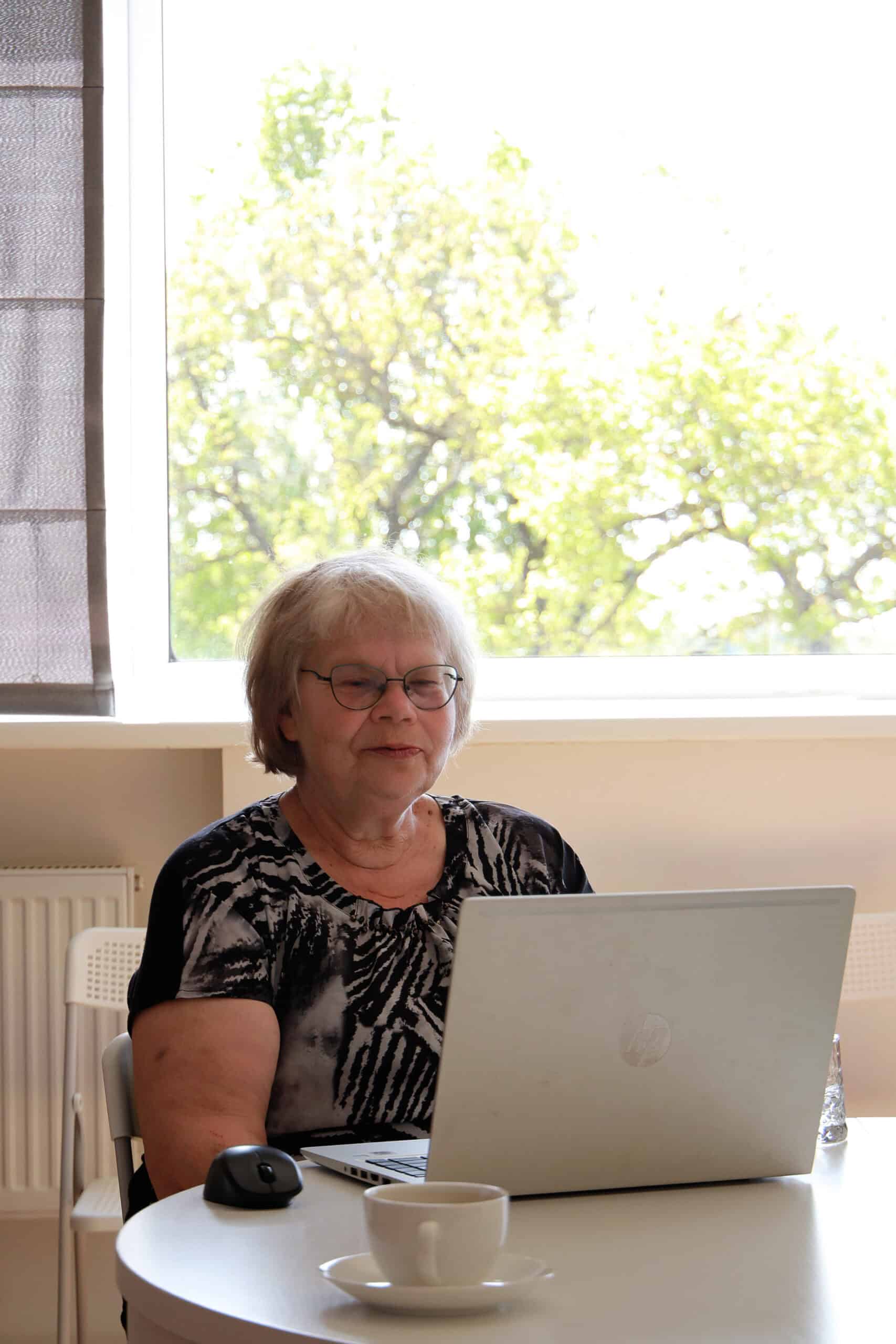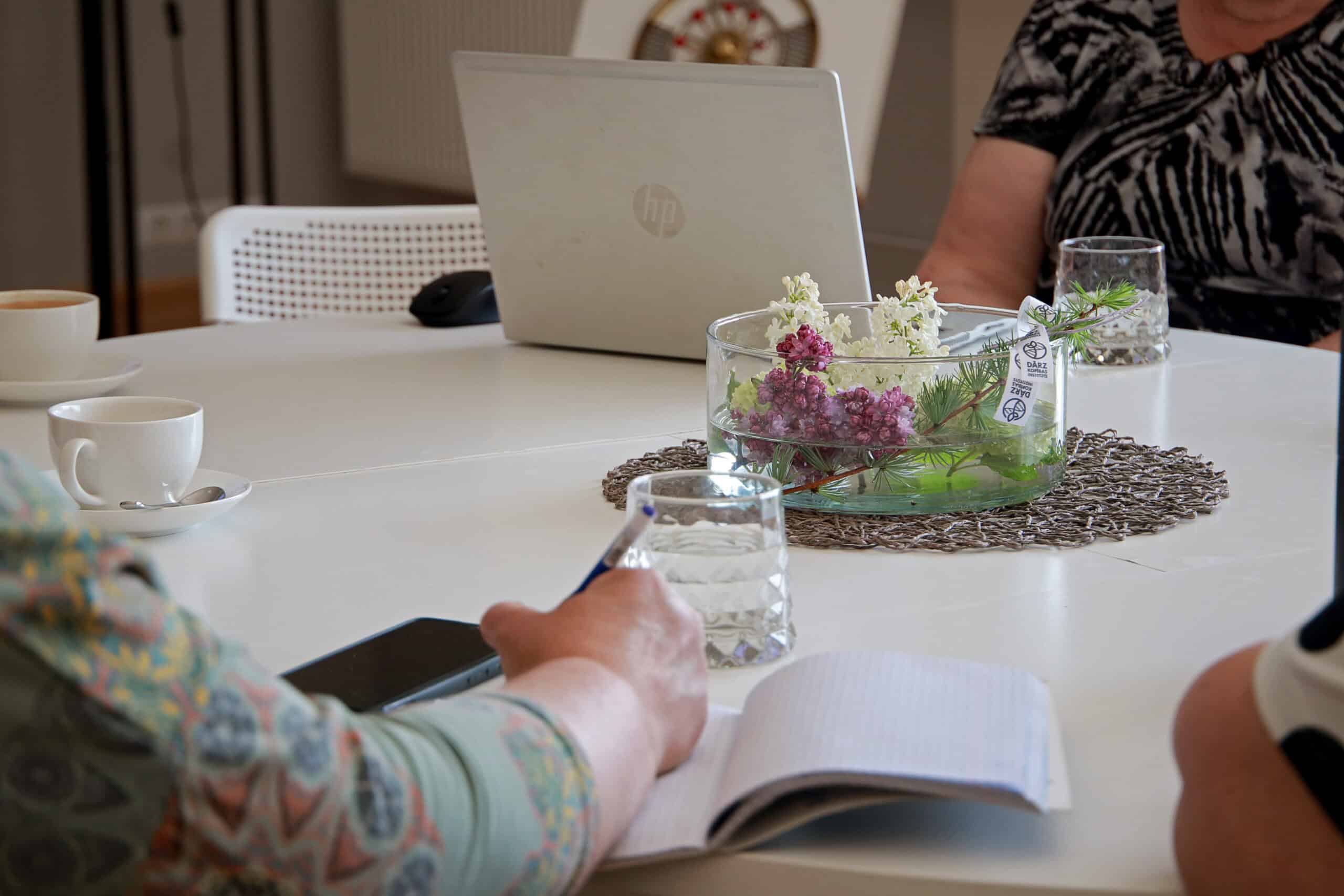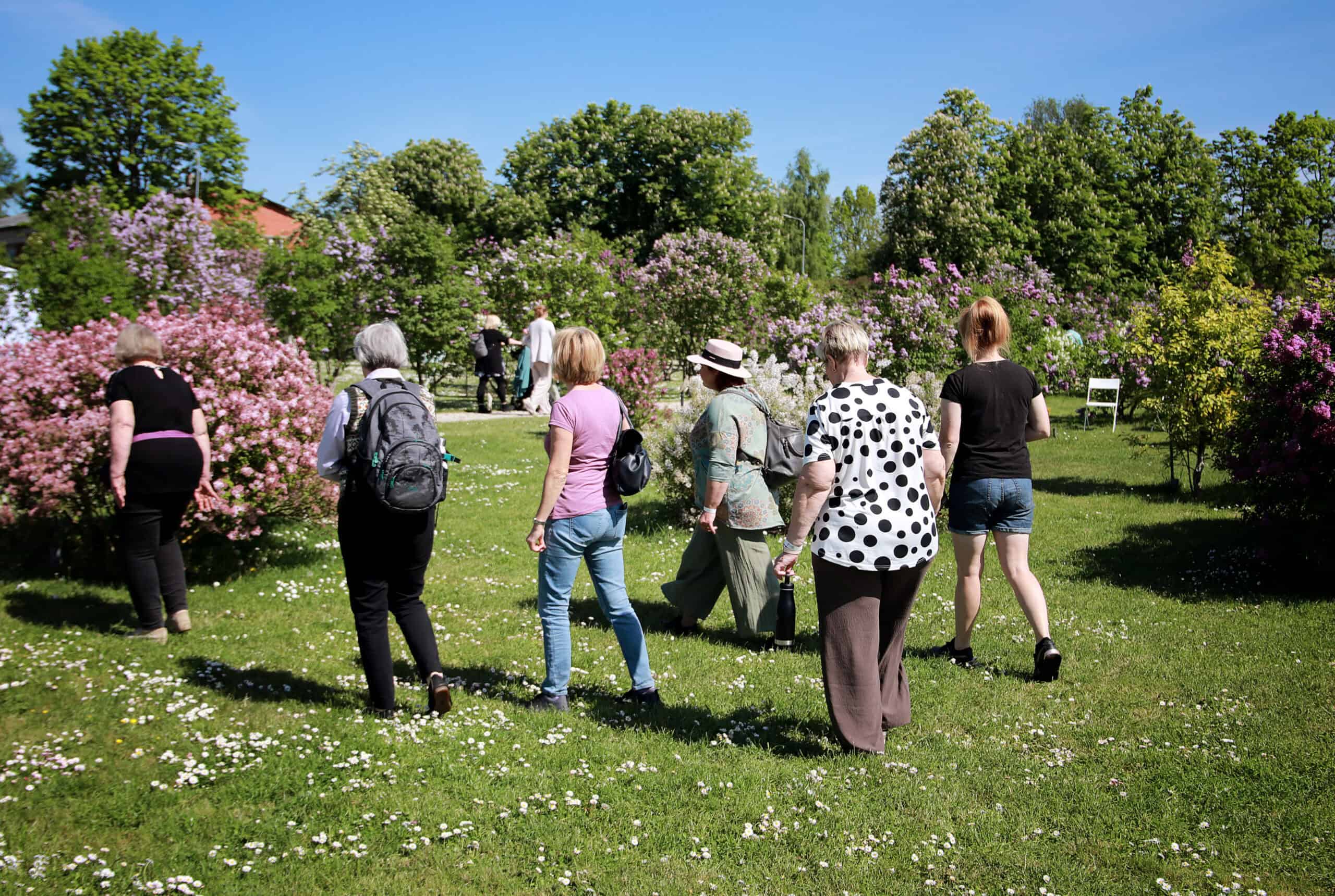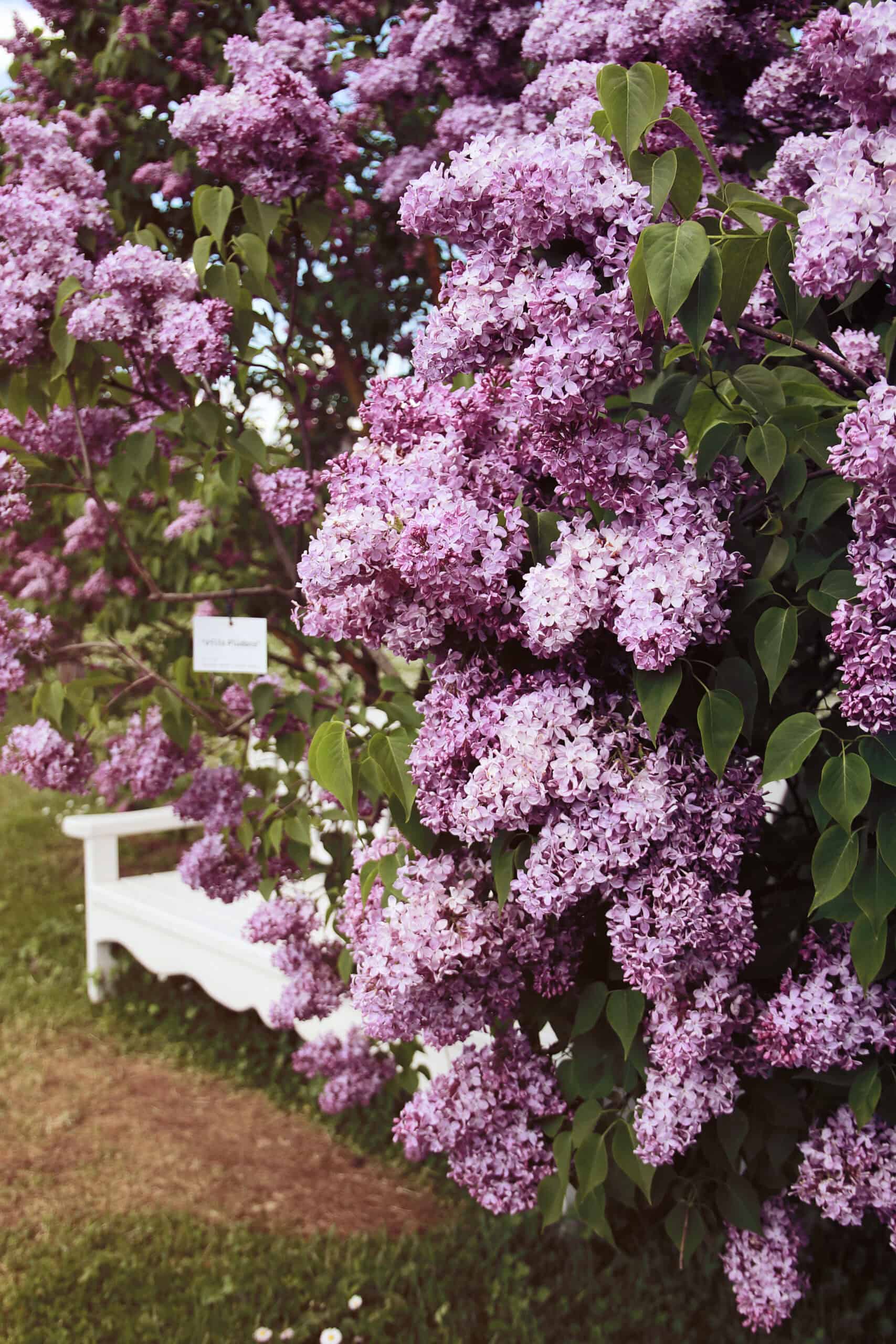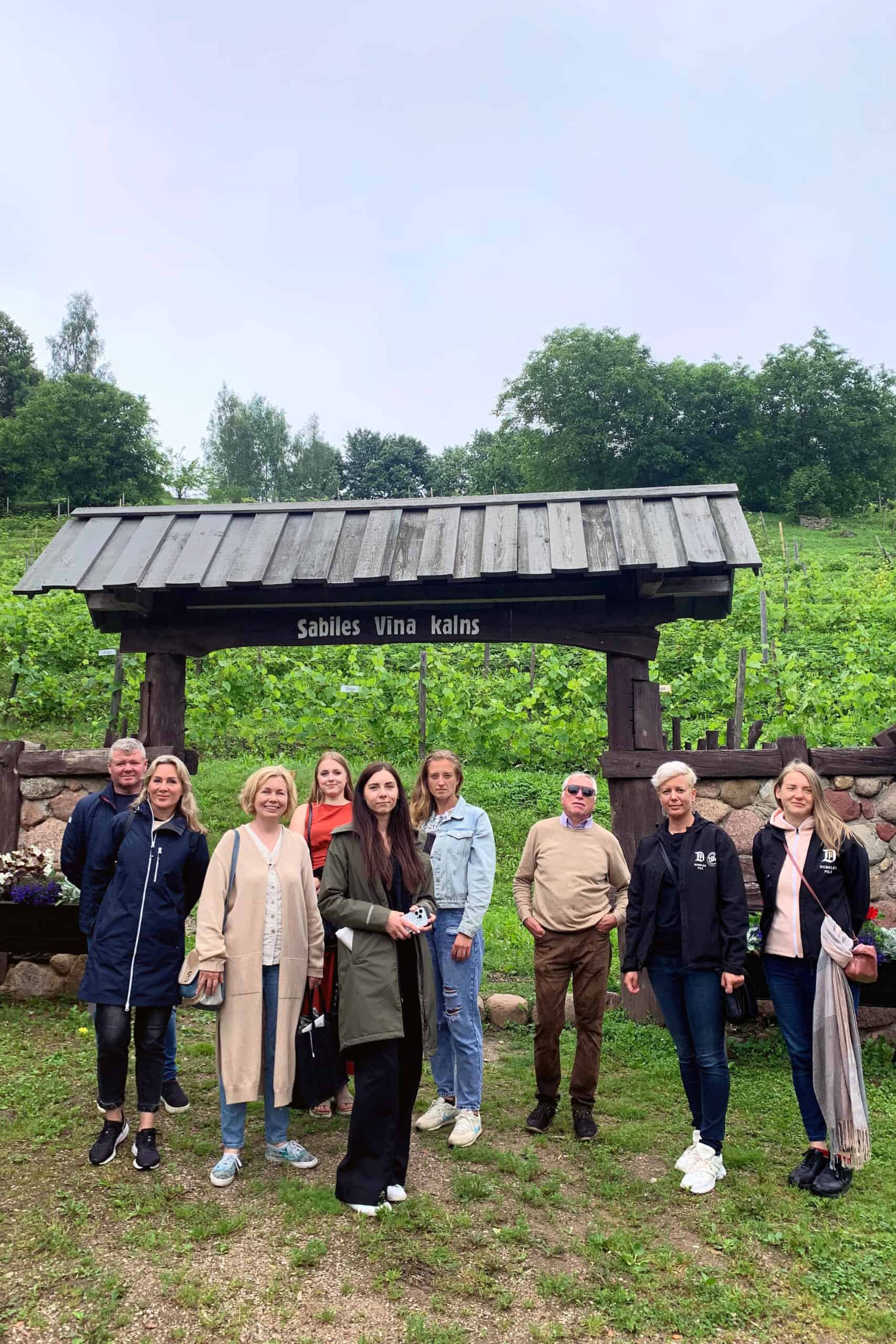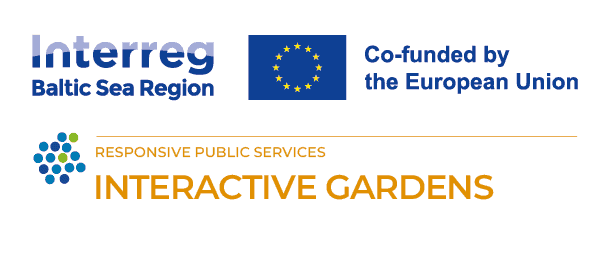
From the Scent of Lilacs to Solar Panels in a Cherry Orchard: The "Interactive Gardens" Project Inspires Through Masterclasses
20 August 2025
In the height of summer, when gardens delight with their beauty and flavours, the “Interactive Gardens” project partner – Institute of Horticulture – invited to two masterclasses rich in knowledge. Their aim was not only to share practical gardening advice but also to promote the exchange of experience on how to create modern and interactive publicly accessible green spaces. These masterclasses are part of the project’s activities, uniting gardening enthusiasts and professionals from various member states of the Interreg Baltic Sea Region Programme.
The first masterclass at the end of May was dedicated to the lilacs – one of the most beloved ornamental plants in Latvian gardens. Led by the leading researcher Dr. biol. Sarmīte Strautiņa, the theoretical knowledge gained about the nuances of lilac cultivation – from selecting the right cultivar to disease prevention – was complemented by an exploratory walk through the institute’s blooming garden. This provided a perfect opportunity to see the vast collection of lilac cultivars and combine theory with a vivid visual experience.
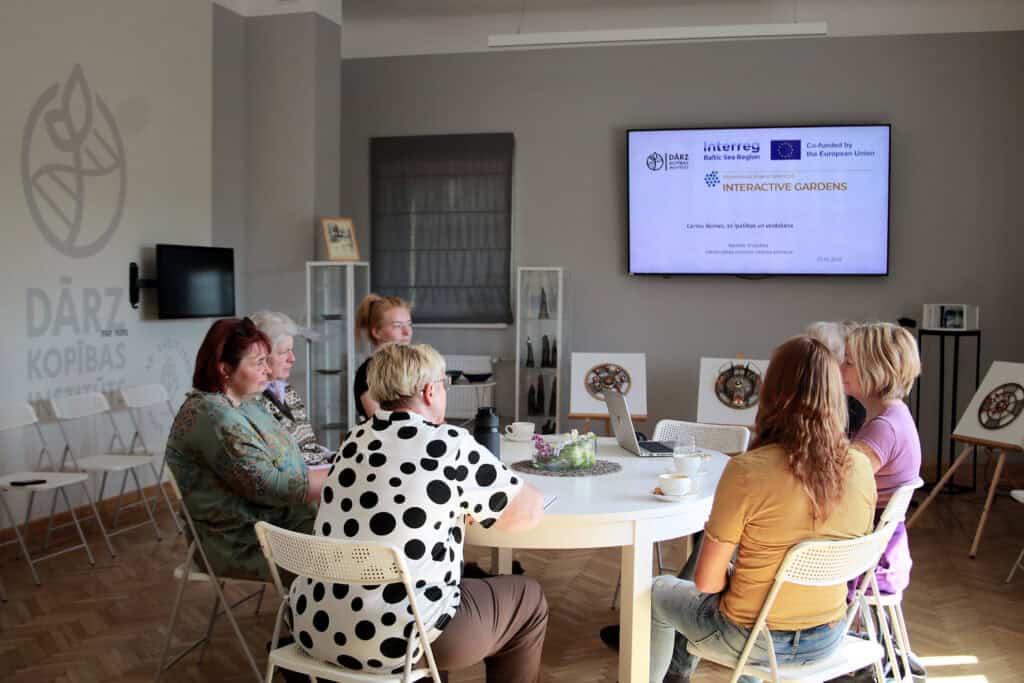
The masterclass series continued in July with a two-day experience exchange, the first of which was held in Dobele, focusing on solutions suitable for public and community gardens. Participants were introduced to cherry and berry cultivars that are not only tasty but also resistant to diseases and pests. Willow plantations, from which natural “green tunnels” can be created, were also examined. The day concluded with a historical and interactive visit to the Dobele Castle Museum, exploring the 17th-century medicinal herbs and the garden created by Duchess Elisabeth Magdalena.
The second day of the experience exchange in Kurzeme revealed through practical examples how modern innovations can enrich the public garden experience. At the Institute of Horticulture’s Pūre Research Centre, participants viewed a cherry orchard with solar panels installed above it. This sustainable approach simultaneously provides green energy and partially protects the harvest from rain and hail. Valuable experience was also gained from insights into other practical solutions, including the use of biodegradable mulch film and the preservation of ancient vegetable varieties. As Dace Smiltniece, a representative from the Dobele Castle Museum, pointed out, the information on such modern and practical methods was particularly useful and engaging.
The masterclass continued with participants exploring ways to combine historical heritage with modern technology. The historic Wine Hill in Sabile was experienced in two dimensions – both in person and through VR glasses, which allowed participants to feel the charm of the vineyard in different seasons. Meanwhile, the experience in Kuldīga vividly illustrated a well-rounded approach to urban greening. The municipality not only cares for the public gardens in keeping with the town’s historic style but also encourages residents to decorate their house facades with flower boxes through support mechanisms, such as providing lists of recommended plants and funding for their purchase. As one of the participants, Gundega Sebre from the Institute of Horticulture, acknowledged, the idea of the municipality creating model flowerbeds with recommended plants is a valuable and transferable experience, as is the idea of supplementing sights with music listened to on headphones.
This experience exchange once again demonstrated that a modern garden is a place where knowledge and experience, history and innovation, people and nature meet. The international significance and inspiring atmosphere of the event are best captured by the words of a participant from Lithuania, Vilma Sakalaite from the Klaipėda Pedagogical Psychological Service: “It was a pleasure to listen, learn, and experience. We took away many useful ideas!” The “Interactive Gardens” project will continue to foster such knowledge exchange, inspiring new ideas throughout the Baltic Sea region.






